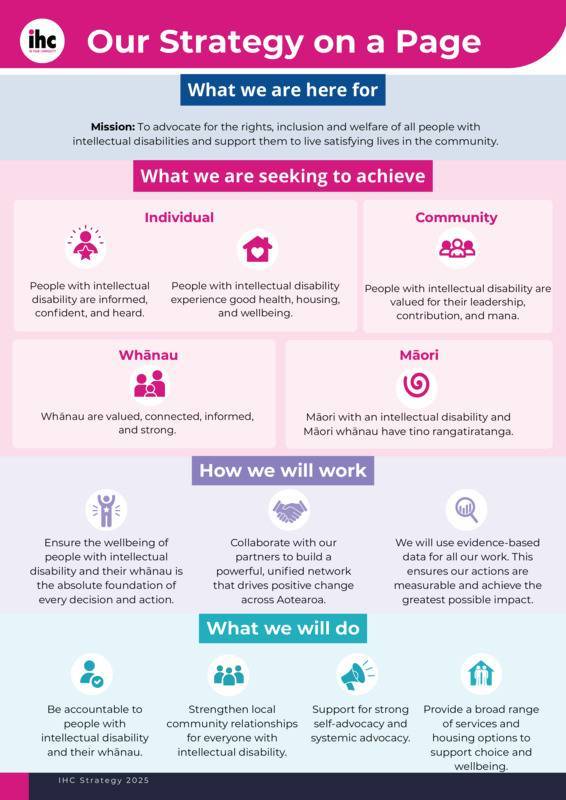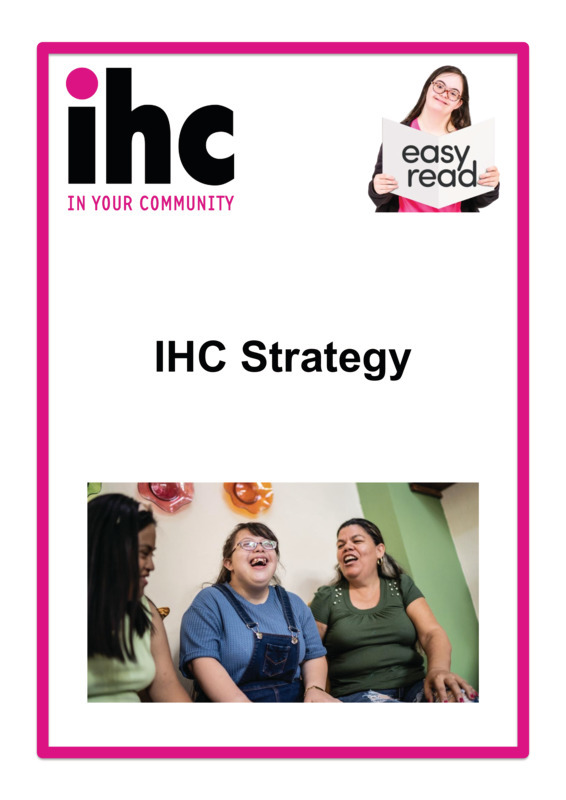Kia ora koutou,
The lives of people with intellectual disability and their whānau are often much more difficult than those of other New Zealanders.
I’ve travelled across the country and listened to people with intellectual disability, their whānau, IHC members and others across our sector, I’ve heard this message time and again. And our data confirms it.
For real and lasting change for the 50,000 New Zealanders living with intellectual disability, and their whānau, we needed a clear and focused strategy.
To shape this strategy, we asked people what matters most to them and what we should do differently.
We heard strong and consistent messages – we must do more.
People with intellectual disability told us they want opportunities to learn, work, build friendships and relationships, and live independently with the right support and control over their lives.
Their whānau said the system is difficult to navigate, that advocacy and community connections are vital, and that safety and security must always come first.
There were two pieces of feedback that resonated with me very strongly.
We must ensure that we “leave no one behind”, particularly those who can’t speak for themselves. And we must always remember the origins of this organisation and the importance of whānau and carers.
Guided by what people have told us and our understanding of the world we’re working in, our strategy sets out the difference we want to make over the next ten years so that every person with an intellectual disability and their whānau can live a good life.
You can find more about what we heard during our engagement and the data behind the strategy below along with details of the actions and programmes already underway that support its direction.
At the heart of the strategy is a deliberate and purposeful shift to focus on people, whānau and communities. Working together, engaging and responding locally, and being open about what IHC can do will make all the difference now and in the future.
This is an important milestone but there is a lot more work to come. I’m committed to listening, working alongside you and being transparent about the choices we make.
Ngā mihi nui,
Andrew Crisp
Chief Executive




















